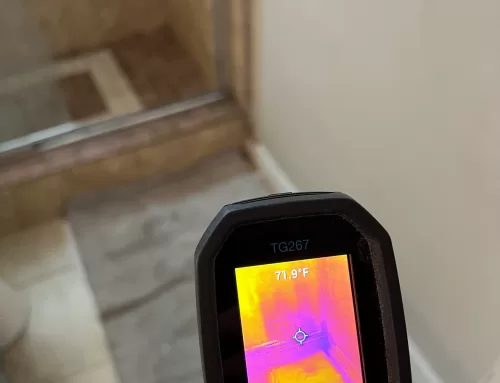WHAT DOES A PROPERTY MANAGEMENT COMPANY DO?
As an investor, understanding the benefits of hiring a property management company will help in deciding if you want to manage your own properties or hire a property manager. One this to consider is that a property management company actually consists of a team of people dedicated to your property. While each property management company is different, many employ a diverse team of experts to ensure that all the necessary skills to tackle each management task are there. From leasing to accounting to everything in between, property management teams cover a lot of important tasks and wear many hats within the rental industry.
When it comes to effectively managing properties, it takes a well-coordinated team with diverse skill sets to ensure everything runs smoothly. While some property management companies will be smaller and more streamlined, many will have a larger crew of specialized managers. From leasing agents to maintenance managers, marketing managers, and every other team role, each individual who works at a property management company has an intricate web of responsibilities that collectively contribute to maintaining and maximizing the value and success of real estate investments.
UNDERSTANDING DIFFERENT PROPERTY MANAGEMENT TEAM ROLES
Each property management company may look a little different, with one or multiple people taking on specific roles throughout the company. Smaller companies may have managers taking on multiple roles, and others may have overlapping roles. In general, these team roles are an effective way for many teams to navigate the specialized duties of property management.
LEASING AGENT
Recognized as the front-line representatives of a property management team, Leasing Agents serve as the initial point of contact for prospective tenants. Their multifaceted roles are integral to the tenant acquisition process, and they excel in several key areas:
Property Showings: They are adept at showcasing properties to potential tenants and possess a keen eye for detail, emphasizing the unique features and benefits of each unit. With a knack for storytelling, they paint a vivid picture of what it would be like to call the property “home.”
Tenant Screening Expertise: A critical responsibility of Leasing Agents is conducting thorough tenant screenings, which involves delving into an applicant’s credit history, rental track record, and income verification. Often a meticulous process, running a thorough tenant screening ensures that prospective tenants are financially qualified and reliable, minimizing potential risks for property owners.
Lease Preparation: When preparing lease agreements, Leasing Agents guarantee that every term and condition is clearly articulated, leaving no room for ambiguity. This is often done in consultation with a lawyer who is familiar with landlord-tenant law in that area. By doing so, it safeguards the interests of both the property owner and the tenant, establishing a foundation for a successful tenancy.
Masterful Negotiators: Negotiation is a skill that Leasing Agents have honed to perfection. As negotiators, they can navigate discussions on lease terms and rental rates, striving for a balance that is beneficial for both parties. Through effective communication and a deep understanding of market dynamics, they seek to create agreements that foster a positive landlord-tenant relationship.
MAINTENANCE MANAGER
When it comes to maintaining properties, the Maintenance Manager is a linchpin in the property management team. Their role encompasses a wide array of crucial responsibilities including:
Overseeing Property Maintenance: The Maintenance Manager assumes the mantle of responsibility for all facets of property upkeep. From routine maintenance tasks like landscaping and HVAC system checks, to more extensive repairs and renovations, they ensure that the property remains in top-notch condition at all times.
Coordination and Management: Acting as the central hub of property maintenance operations, the Maintenance Manager also serves as the liaison between maintenance staff, contractors, and vendors. They facilitate seamless coordination, efficient task execution, and timely completion of maintenance projects. They are often in charge of creating a list of trusted vendors that can be used when maintenance issues or emergencies arise.
Budgeting and Financial Management: Since financial prudence is at the forefront of the Maintenance Manager’s role, it’s their job to make sure they meticulously oversee the budget allocated for maintenance activities, so that expenses align with the predetermined financial constraints. Astute financial management is pivotal in maintaining profitability for property owners.
Inspections and Assessments: Regular inspections and assessments are the cornerstone of proactive property maintenance. The Maintenance Manager leads this effort, diligently identifying areas that require attention and implementing preventive maintenance schedules. With this proactive approach, potential issues can be mitigated and the longevity of the property can be prolonged.
Emergency Response: In the unpredictable realm of property management, emergencies can arise at any time. A Maintenance Manager stands ready to address urgent repair requests promptly and efficiently. A swift response not only leads to better tenant satisfaction but also preserves the property’s value.
Renovations and Upgrades: Beyond routine maintenance, Maintenance Managers may spearhead larger projects, such as renovations or upgrades. Projects could encompass anything from cosmetic enhancements to structural improvements aimed at enhancing the property and its overall appeal.
MARKETING MANAGER
The role of a Marketing Manager within a property management team is instrumental in driving tenant interest and ensuring optimal property occupancy. Their diverse responsibilities are geared towards optimizing property visibility and attracting potential tenants through strategic marketing efforts. Some of their core responsibilities are:
Strategic Marketing Planning: Marketing Managers are responsible for developing and executing customized marketing strategies for each property. Designed to maximize exposure and generate tenant interest, these tailored plans are put in place so that the property stands out in a competitive market.
Market Research and Analysis: In addition, Marketing Managers conduct comprehensive market research which involves identifying target demographics and trends, providing invaluable insights for effective tenant targeting. When they implement this data-driven approach, marketing efforts are more focused and impactful.
Compelling Property Listings: Tasked with creating engaging property listings, Marketing Managers take charge of highlighting key features and benefits of each property. This way, they can capture the attention of prospective tenants and leave a lasting impression.
Multi-Channel Advertising: Leveraging a diverse range of advertising channels, both online and offline, is a key strategy employed by Marketing Managers. By utilizing platforms like social media, property listings websites, and traditional marketing avenues, they ensure that the property is promoted to a broad audience, ultimately generating valuable tenant leads.
Online Presence Management: Since the digital landscape is a critical arena for property marketing, Marketing Managers must oversee and maintain an engaging online presence. To do so, they must manage the property’s website, execute effective social media marketing campaigns, and conduct targeted email marketing efforts.
Property Showings and Events: The Marketing Manager may also take the lead in organizing and managing property showings and events. It’s on them to create a personal connection with potential tenants and showcase the property so that they can fill vacancies.
Performance Metrics Monitoring: With data-driven decision-making being a hallmark of effective marketing, Marketing Managers are responsible for monitoring and analyzing key performance metrics. Performance metrics provide valuable insights into the effectiveness of marketing strategies, allowing for continuous refinement and optimization of outreach efforts.
ACCOUNTING MANAGER
To secure the financial health and stability of a property an accounting manager performs duties such as:
Financial Record Keeping: The Accounting Manager maintains precise and well-organized financial records for each property by tracking all income, expenses, and other financial transactions. The accuracy of these records forms the foundation for informed financial decision-making.
Financial Reporting: Accounting Managers also prepare comprehensive financial reports, including detailed profit and loss statements. These reports offer property owners transparent insights into the performance and profitability of their investments.
Budget Creation and Management: Accounting Managers collaborate closely with property managers in the creation of budgets and financial forecasts. These tools serve as guiding frameworks, ensuring that expenses align harmoniously with revenue. Strategic financial planning is crucial in maintaining profitability and achieving long-term financial goals.
Vendor Payments and Expense Management: The Accounting Manager oversees the timely payment of vendors and manages accounts payable so that all payments are made promptly. They also verify that expenses remain within budgetary constraints, maintaining financial stability.
Rent Collection Oversight: The financial health of any property heavily depends on effective rent collection. In order to collect rent punctually, the Accounting Manager works alongside property managers to prevent cases of delinquency while also adhering to legal procedures.
Financial Compliance: Additionally, the Accounting Manager ensures that all financial operations and transactions are conducted in strict accordance with established laws and regulations. This diligence protects both the property management team and property owners from potential legal complications.
5 BENEFITS OF WORKING WITH A PROPERTY MANAGEMENT COMPANY
1. LIABILITY MITIGATION
An often overlooked advantage of third-party property management is the protection it offers against potential liability issues. Seasoned property managers can shield inexperienced investors from false accusations regarding rent collection, eviction procedures, or maintenance negligence. Property managers generally have the experience, legal understanding, and documentation to navigate complex liability and legal situations better than an unlicensed and self-managing investor.
2. TENANT QUALITY ASSURANCE
Property management companies specialize in property oversight, honing their ability to identify reliable tenants. And engaging their services typically results in a higher caliber of occupants, enhancing the overall experience for property owners.
3. REDUCED VACANCY PERIODS
Not only do property management companies help you advertise properties to fill vacancies, but they do so promptly and efficiently. Their expertise in this area generally outperforms that of individual landlords, leading to significantly shorter vacancy periods. This, in turn, allows property owners to maximize their profits year-round.
4. COST-EFFECTIVE MAINTENANCE SOLUTIONS
Collaborating with a reputable property management company gives you access to a network of skilled contractors. Leveraging these established relationships translates to cost savings on maintenance. Additionally, the recommended contractors bring an added layer of trust and reliability to the table.
5. POSITIVE TENANT REVIEWS
When tenants find the process of renting through property managers to be more streamlined and professional, they’re more inclined to leave positive reviews upon vacating your premises. As a result, these favorable testimonials serve as a powerful marketing tool, attracting a larger pool of potential tenants when the property becomes available again.
HOW WORKING WITH A PROPERTY MANAGEMENT COMPANY MAKES A DIFFERENCE
Each team member of a property management company plays a crucial role in maintaining a property and ultimately improves tenant satisfaction. Together, they form a cohesive unit, balancing responsibilities and expertise to guarantee the profitability and longevity of the properties under their care.
Understanding the roles within a property management team is essential for property owners seeking to maximize their investments and for professionals looking to excel in this dynamic field. With the right team in place, a property management company becomes not only a valuable asset for property owners, but a pillar of stability and quality service in the real estate industry.
Contact us today and let us help you maximize the benefits and minimize the costs from your properties! 239-224-8919




